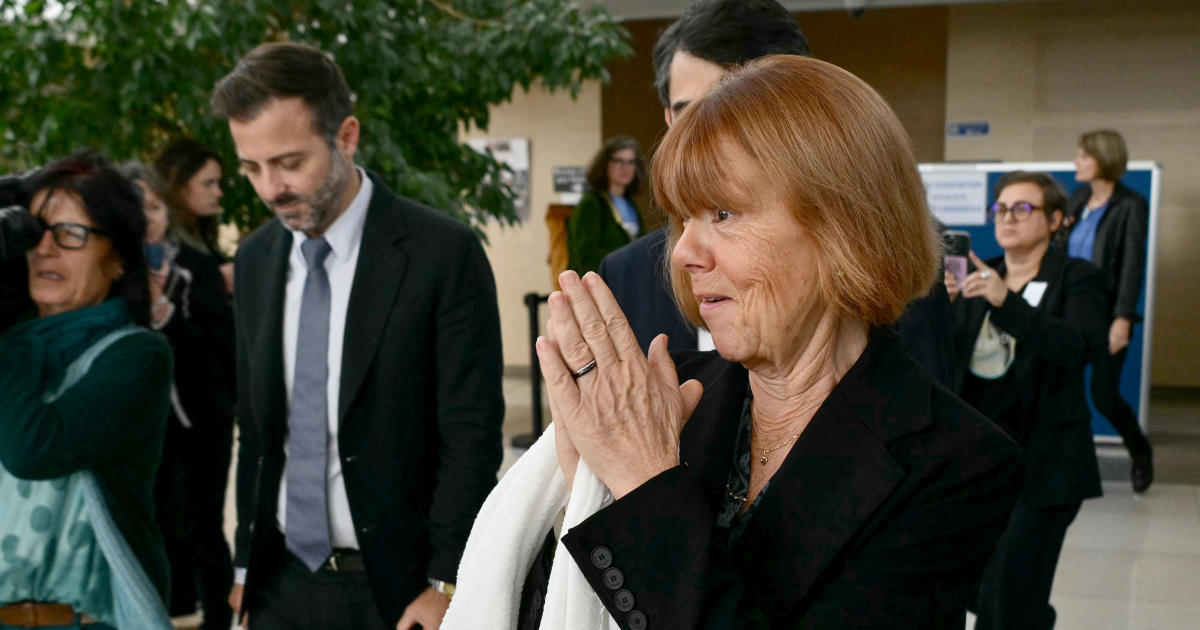The trial of Dominique Pelicot, accused of drugging and repeatedly raping his wife Gisele with the participation of dozens of men, has sent shockwaves through France and garnered international attention. Gisele’s courageous decision to pursue a public trial, defying typical French legal practices surrounding sexual assault cases, has illuminated the country’s outdated laws and the systemic challenges faced by rape survivors seeking justice. Her powerful testimony, detailing years of horrific abuse and the betrayal by her husband, serves as a chilling example of the insidious nature of sexual violence and the need for significant legal reform. The trial has also ignited widespread protests across France, raising crucial questions about the country’s approach to sexual assault, consent, and the ongoing battle against rape culture.
Gisele Pelicot’s Testimony: A Brave Account of Decades of Abuse
The Horrific Details Unveiled
Gisele Pelicot’s testimony painted a harrowing picture of a life systematically destroyed. She described how her husband, Dominique, surreptitiously drugged her for almost a decade, rendering her unconscious before he and dozens of other men repeatedly raped her in their own home. She recounted how she unknowingly consumed spiked food and drinks, trusting the man she believed to be her loving husband, unaware of the horrific reality unfolding. The simple act of a shared glass of wine or a plate of potatoes became sinister elements in her abuse, masking the insidious nature of the crimes. Her words highlighted the deceptive ease with which the abuse occurred, undermining the common misconception that sexual violence is always accompanied by obvious physical force or resistance.
Facing the Accused and Seeking Understanding
Despite the immeasurable pain she endured, Gisele showed remarkable resilience and determination. Her public testimony aimed not only at securing justice but also at inspiring other victims of sexual assault. She expressed her struggle to understand how her “perfect” husband could sink to such depths of depravity, revealing the complexities of betrayal and the devastating impact on trust and self-worth. Gisele’s repeated declaration of “Rape is rape!” was a powerful statement confronting the minimizations often employed by perpetrators and their legal representatives. Her courageous insistence on a public trial, despite the legal complexities, underscores her commitment to breaking the silence surrounding sexual assault and challenging the social stigma that often isolates survivors.
France’s Legal Framework: A System Failing Victims
Outdated Laws and Inadequate Protection
The Pelicot case has exposed significant flaws in French law concerning sexual assault. Until recently, the legal definition of rape narrowly focused on “illicit coitus with a woman who is known not to consent,” a Napoleonic-era definition which failed to fully recognize the nuances of non-consensual sexual acts. The introduction of a legal age of sexual consent in 2021 was a step forward but leaves a critical gap in the protection of adult victims. French law currently defines rape based on the presence of “violence, coercion, threat, or surprise,” overlooking the essential element of consent as a central component of the crime.
The Challenges of Obtaining Convictions
The lack of explicit consent within the legal framework hinders the pursuit of justice for victims. Prosecutors must demonstrate an intention to rape, forcing survivors to meet strict criteria. Catherine Le Magueresse, a legal expert, emphasizes that current laws expect a “stereotype of a ‘good victim’ and a ‘true rape'”—a narrative that accurately reflects only a minority of cases. The result is incredibly low conviction rates—a mere 14% of rape accusations progress to formal investigations, highlighting a severe systemic problem. The need for legal reform is urgent, particularly with a focus on establishing explicit consent as the bedrock of the legal definition of rape, as is common practice in numerous other countries.
Public Outrage and Calls for Change
Nationwide Protests Against Rape Culture
Gisele Pelicot’s bravery has ignited public outrage and widespread protests across France. Demonstrators are rallying to denounce the pervasive “rape culture” in the country, highlighting the deep-seated social acceptance of sexual violence. The Pelicot case has acted as a catalyst, shining a much-needed spotlight on broader societal issues concerning the normalization of harmful behaviors and attitudes. Many protesters hope that this trial serves as a crucial turning point, finally forcing legislative changes needed to protect women and enhance accountability for perpetrators.
The Path to Legal Reform and Societal Shifts
The ongoing protests are accompanied by urgent calls for reforming sexual assault laws to explicitly incorporate the principle of consent, aligning France’s legislation with the legal frameworks in other European countries. Moving beyond just legal adjustments, efforts must also center on addressing underlying societal attitudes and beliefs that enable sexual violence to persist. The trial is not just a legal matter but a profound examination of the collective responsibility to confront and challenge harmful patriarchal norms that facilitate sexual assault. Education, community awareness programs, and increased support systems for survivors are essential for creating real and lasting change.
Takeaway Points
- Gisele Pelicot’s testimony highlighted the devastating impact of prolonged sexual abuse and the importance of public trials in empowering victims.
- France’s outdated laws concerning sexual assault, specifically the lack of explicit consent in its legal definition of rape, were dramatically exposed by the trial.
- The shockingly low conviction rates in rape cases underscore the need for comprehensive legal reform and societal shifts to combat rape culture.
- Public protests sparked by the Pelicot case illustrate the collective outrage and demand for better protection of sexual assault survivors and increased accountability for perpetrators.




